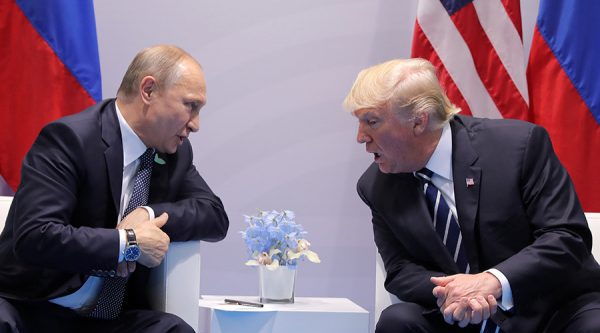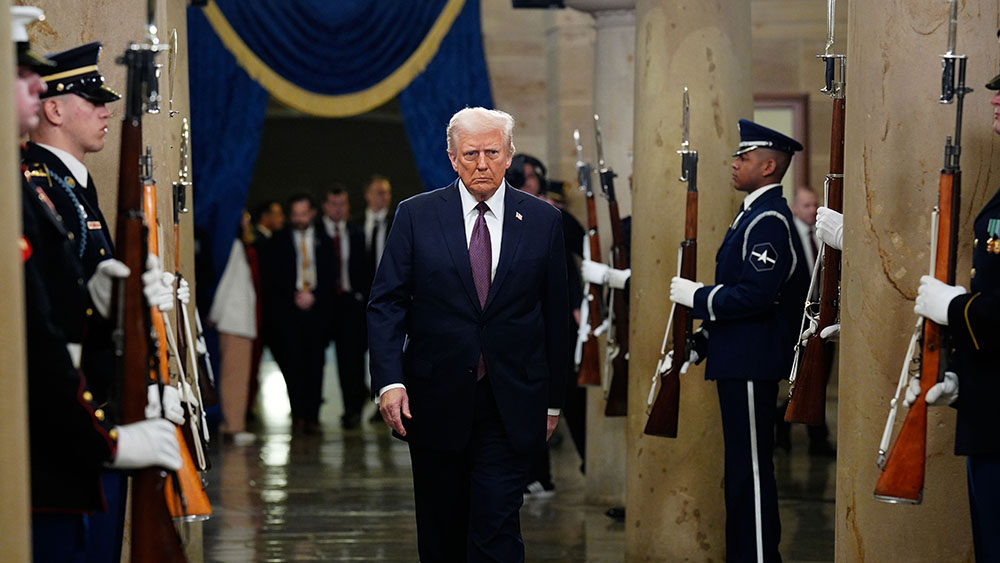 Parler
Parler Gab
Gab
- Despite extensive financial and military support from the U.S. and European allies, Ukraine has not secured a decisive victory against Russia, highlighting the limitations of interventionist policies.
- The Trump administration has initiated peace talks with Russia, excluding European intermediaries and emphasizing an "America First" approach, which has sparked controversy among European leaders.
- The Ukraine-Russia conflict has exposed flaws in the U.S.-led global security framework, leading to a potential reevaluation of America's role in European defense and a call for greater European autonomy.
- Ukrainian President Volodymyr Zelensky has called for the creation of a "European Army," recognizing the need for Europe to take responsibility for its own defense in the face of reduced American support.
- The conflict marks a turning point for both Europe and the U.S., with the potential for a new era of self-reliance and realignment of global power dynamics, away from perpetual foreign wars and towards a focus on national interests.
The failed proxy war
Despite the billions of dollars and advanced weaponry provided by the United States and European allies, Ukraine has failed to secure a decisive victory against Russia. This stark reality was recently underscored by Harald Kujat, the former chairman of the NATO Military Committee and a retired German Air Force general. Kujat emphasized that after three years of conflict, the Ukrainian army is in shambles, despite the substantial investments from the West. The U.S. alone has invested approximately $200 billion in this futile effort. Kujat stated, "It is time for our politicians and media to take note of the bitter truth that for three years, despite enormous financial and material support from the U.S. and European allies, as well as training and modern weapons systems, Ukraine has not been able to achieve military success. And that such a possibility, if it ever existed, no longer exists."The Trump administration’s peace initiative
The Trump administration, recognizing the futility of the conflict and the burdens it places on American taxpayers, has taken a decisive step toward negotiating an end to the war. This move has enraged European leaders, particularly those in London and Paris, who have been clamoring for a continued confrontation with Russia. These leaders, who have long relied on U.S. military and financial support, are now faced with the possibility of taking responsibility for their own defense and geopolitical ambitions. President Trump’s peace talks with Russian President Vladimir Putin have excluded European intermediaries, a decision that underscores the administration’s commitment to an "America First" policy. This exclusion has sparked controversy, with European leaders arguing that they should have a seat at the table. However, as Trump sees it, these leaders have shown little interest in peace until now and have only sought to prolong the conflict for their own ends. Ukrainian President Volodymyr Zelensky, addressing the Munich Conference, called for the creation of a new "Army of Europe," recognizing that the era of American hegemony in European defense may be coming to an end. He stated, "We can't rule out the possibility that America might say no to Europe on issues that threaten it." Zelensky further noted, "Three years of full-scale war have proven that we already have the foundation for a united European military force. And now, as we fight this war and lay the groundwork for peace and security, we must build the armed forces of Europe."The broader implications
The shift in U.S. foreign policy has far-reaching implications for the post-World War II international order, which has largely been underpinned by American military and financial support. The Trump administration’s approach challenges the status quo, particularly the notion that the U.S. should bear the primary burden of global security while Europe reaps the benefits. The Russian online journal, Military Review, highlighted the potential for a shift in the balance of power, noting, "There is a group of countries in Europe that want Russia to be defeated. It is headed, as you might guess, by Great Britain and France. The most important question now is whether they will dare to go against the USA."A new chapter in European defense
The call for a European Army is not without its critics. The significant cost of building and maintaining such a force would likely necessitate cuts to cherished social programs and other welfare benefits in European countries. This could lead to a reevaluation of the true costs and benefits of aggressive foreign policies. French President Emmanuel Macron has long advocated for greater European defense autonomy, and the current situation may finally provide the impetus for such a move. However, the question remains whether this new European military force would be genuinely defensive or have more aggressive intentions, particularly toward Russia.A new era of self-reliance
The Ukraine-Russia conflict has exposed the flaws in a foreign policy that relies on American intervention to achieve European and globalist objectives. The Trump administration’s push for an end to the war and a reevaluation of defense responsibilities marks a significant shift in U.S. foreign policy. As European leaders grapple with the reality of reduced American support, they must decide whether to continue their warmongering ways or to chart a new course of self-reliance and peaceful coexistence. The end of the Ukraine conflict may not only bring much-needed relief to the war-torn region but also signal a broader realignment of global power dynamics. For American taxpayers, it represents a welcome reprieve from the exorbitant costs of perpetual foreign wars. The time has come for Europe to stand on its own and for the U.S. to focus on its own national interests. Sources include: Substack.com X.com JustSecurity.orgGOP advances Trump’s tax cuts and border agenda in dramatic 217-215 House vote
By Cassie B. // Share
Trump’s $5 million “gold card” visa plan could erase U.S. national debt
By Cassie B. // Share
Putin offers rare earth minerals deal to U.S. amid Ukraine war tensions
By Cassie B. // Share
Texas rancher slain by cartel IED near border: A call for vigilance and action
By Willow Tohi // Share
The sky’s the limit? Shanahan and Trump demand answers on geoengineering and public health
By Willow Tohi // Share
What will the Trump wrecking ball hit next?
By News Editors // Share
Governments continue to obscure COVID-19 vaccine data amid rising concerns over excess deaths
By patricklewis // Share
Tech giant Microsoft backs EXTINCTION with its support of carbon capture programs
By ramontomeydw // Share
Germany to resume arms exports to Israel despite repeated ceasefire violations
By isabelle // Share










